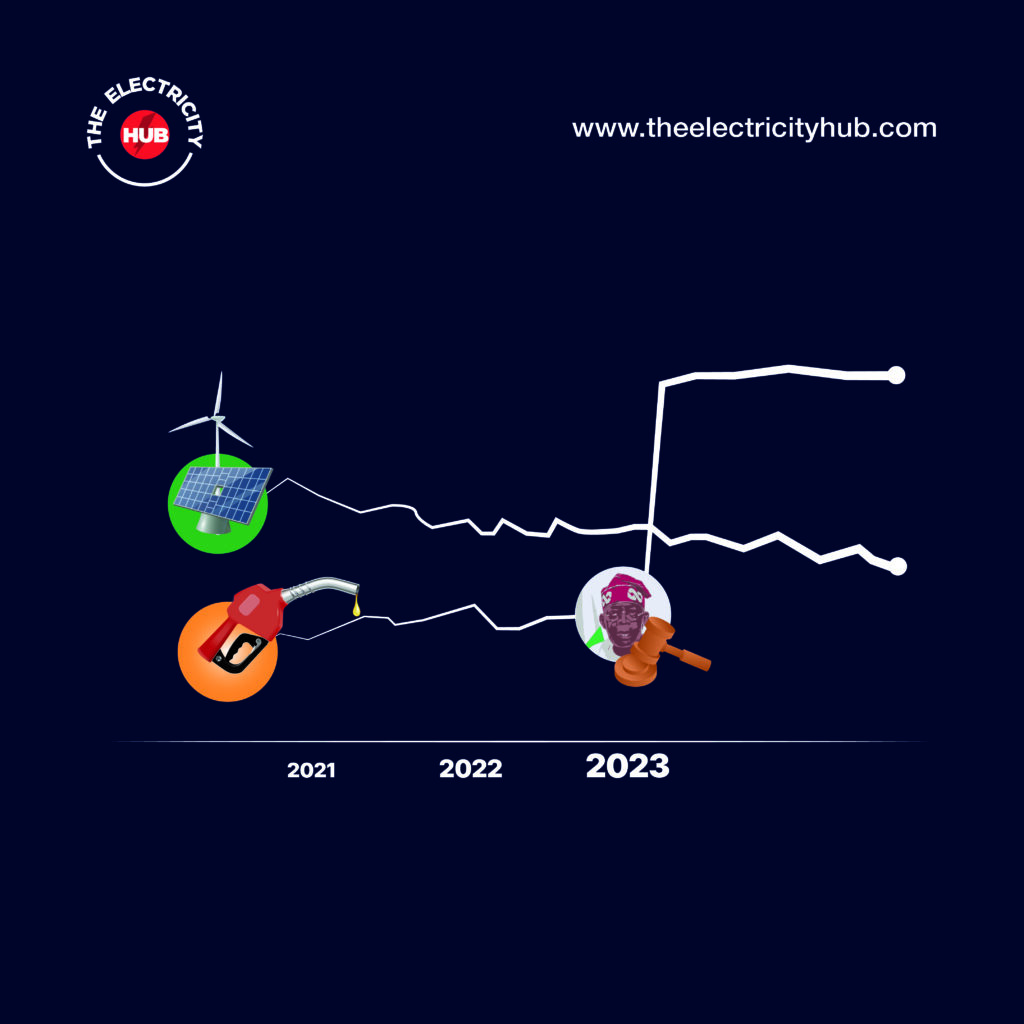
Subsidies have been a primary tool the Nigerian government employs to mitigate the impact of rising energy prices. Subsidy policies in Nigeria date back to the 1970s when the country began subsidizing petroleum products to mitigate the effects of global oil price increases on its citizens. Over the years, various subsidy schemes have been implemented to control the prices of petroleum products such as gasoline and kerosene and later extended to include electricity tariffs.
Subsidy policies in Nigeria have played a vital role in protecting consumers from the impact of rising energy prices. The subsidies have ensured that Nigerians have access to affordable energy and have served as a bridge and leverage between rising energy prices and consumers. Additionally, subsidies have been instrumental in curbing inflationary pressures arising from escalating energy prices and have supported economic activities and productivity by moderating the high cost of energy inputs for businesses, thus promoting growth and employment opportunities.
However, during the second quarter of 2023, the Nigerian government announced the total removal of fuel subsidies, which led to agitations in various sectors of the country. Subsidies were initially initiated to promote social welfare and economic stability. Still, over the years, they became a thorn in the flesh of Nigeria’s fiscal policies, with the previous administration recording a total of 77 trillion naira ($167bn) debt to local and foreign creditors. The cost of subsidy diverted funds away from significant sectors such as education, healthcare, and infrastructure development, and 96% of the government fund was being used to pay off debts. The continuation of subsidy payments would have been disastrous to the country. Reports have shown that Nigeria has saved over 1 trillion naira ($1.32 billion) in just over two months by removing the petrol subsidy.
Furthermore, subsidy policies created an avenue for fraud and corruption to flourish in the country. A lack of effective monitoring and control mechanisms led to diversion, smuggling, and black market activities, leading to market distortions and benefiting unintended beneficiaries. This has made the country stagnant for years, limited infrastructure development, limited the capacity to meet the growing energy demand, and adversely affected the sustainability of the subsidy schemes.
In conclusion, while this removal of subsidy exposes consumers in Nigeria to the full impact of rising energy prices, it also opens the door for renewable energy development in the country. A positive outlook on the subsidy removal would be the diversification and focus on developing renewable energy resources such as solar, wind and critical minerals.
Removing subsidies allows for accurate energy pricing, enhancing the competitiveness of renewable energy sources. It also attracts private sector investments in renewable energy projects, encourages policymakers to prioritize renewable energy, and supports Nigeria’s environmental goals. However, challenges related to financial accessibility, infrastructure development, and capacity building must be addressed to pave the way for renewable energy in Nigeria effectively post-subsidy removal. This shift sets the stage for a greener and more sustainable energy future in Nigeria.